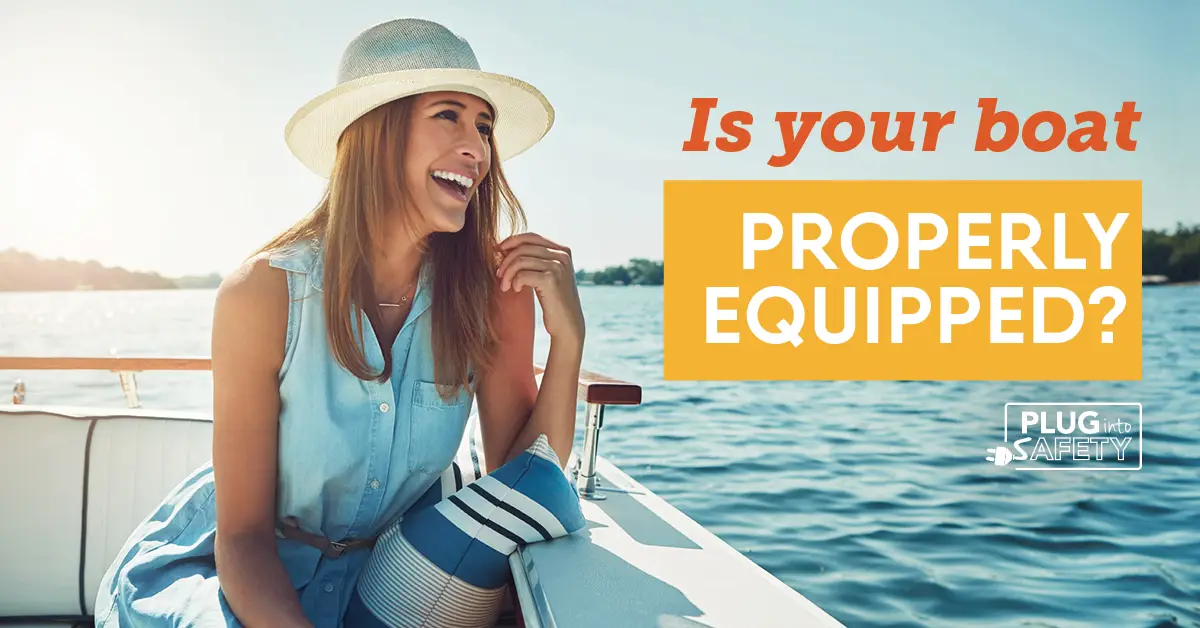Electric safety is probably the last thing that crosses anyone’s mind on a leisurely summertime boat ride. But because water and electricity are a deadly combination, before taking off, brush up on some boating safety rules.

Boaters should constantly be aware of the location of power lines. That means paying close attention when raising or lowering the boat’s mast or spar and ensuring drying sails and sheet lines don’t blow into power lines.
Among other maritime must-dos:
- While on the water, watch for signs that indicate where underwater utility lines are located. Don’t anchor your boat near them.
- When fishing, check for overhead power lines before casting your line.
- If your boat accidentally comes in contact with a power line, whatever you do, don’t jump in the water. Stay on board and don’t touch anything made of metal. Don’t leave the boat until it has moved away from the power line.
- If you notice a tingling sensation while swimming, the water could be electrified. Get out quickly, avoiding metal objects like ladders.
- Equipment leakage circuit interrupters protect swimmers nearby from potential electrical leakage into the water around your boat. Consider installing them on your boat.
To make sure your boat’s electrical system is in ship shape, periodically have a professional marine electrician inspect it. It should meet local and state safety codes and standards. Make sure the boat’s AC outlets are three-prong. All electrical connections should be in a panel box to avoid contact. Ground fault circuit interrupters should be installed on your boat and on the dock. When using electricity near water, use portable GFCIs labeled “UL-Marine Listed.” Test all GFCIs once a month.
Is your boat properly equipped?
If you own a boat, it’s important to familiarize yourself with Coast Guard regulations. Complying isn’t difficult, but it does take planning. If you own a vessel measuring 16 to 24 feet, make sure the boat contains the following:
- Registration
- Lifejackets (one Type III, Coast Guard approved, per person)
- At least one Type IV flotation device (a throwable device in case someone falls overboard)
- A sound-producing device, such as a horn or whistle (preferably whistles without cork, as cork tends to swell)
- A fire extinguisher in good condition
- Flares